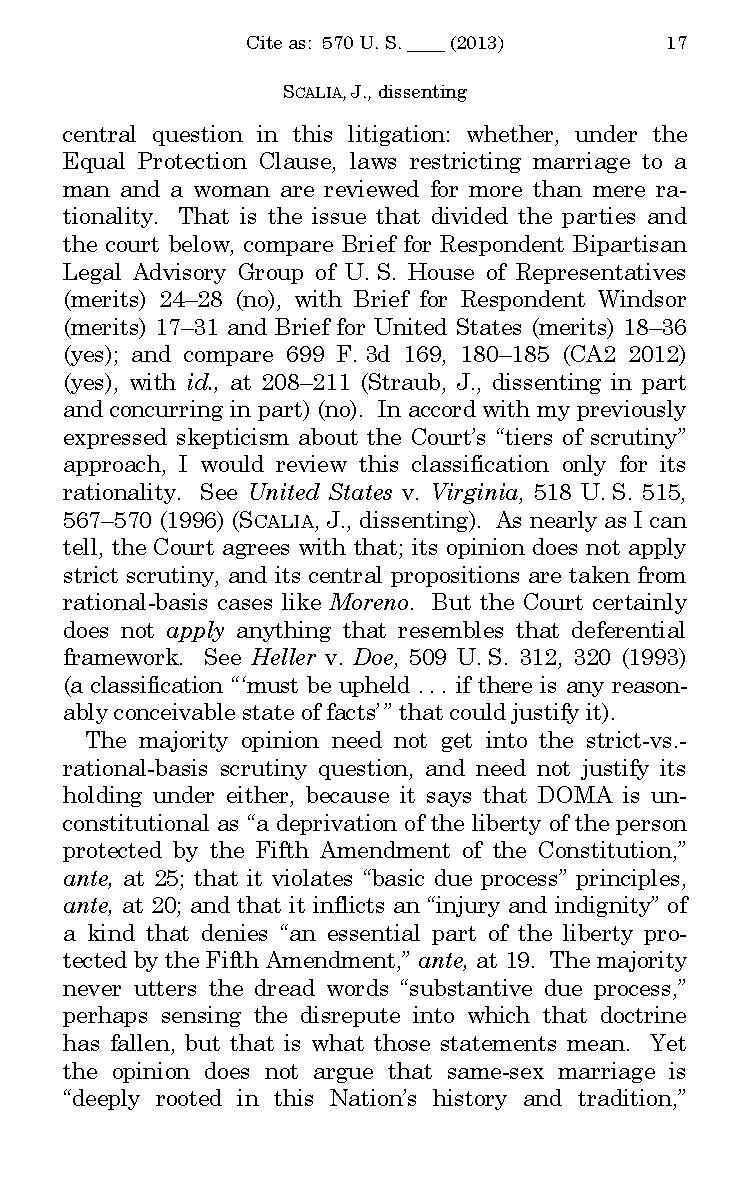central question in this litigation: whether, under the Equal Protection Clause, laws restricting marriage to a man and a woman are reviewed for more than mere rationality. That is the issue that divided the parties and the court below, compare Brief for Respondent Bipartisan Legal Advisory Group of U. S. House of Representatives (merits) 24–28 (no), with Brief for Respondent Windsor (merits) 17–31 and Brief for United States (merits) 18–36 (yes); and compare 699 F.3d 169, 180–185 (CA2 2012) (yes), with id., at 208–211 (Straub, J., dissenting in part and concurring in part) (no). In accord with my previously expressed skepticism about the Court's "tiers of scrutiny" approach, I would review this classification only for its rationality. See United States v. Virginia, 518 U.S. 515, 567–570 (1996) (Scalia, J., dissenting). As nearly as I can tell, the Court agrees with that; its opinion does not apply strict scrutiny, and its central propositions are taken from rational-basis cases like Moreno. But the Court certainly does not apply anything that resembles that deferential framework. See Heller v. Doe, 509 U.S. 312, 320 (1993) (a classification "'must be upheld ... if there is any reasonably conceivable state of facts'" that could justify it).
The majority opinion need not get into the strict-vs.-rational-basis scrutiny question, and need not justify its holding under either, because it says that DOMA is unconstitutional as "a deprivation of the liberty of the person protected by the Fifth Amendment of the Constitution," ante, at 25; that it violates "basic due process" principles, ante, at 20; and that it inflicts an "injury and indignity" of a kind that denies "an essential part of the liberty protected by the Fifth Amendment," ante, at 19. The majority never utters the dread words "substantive due process," perhaps sensing the disrepute into which that doctrine has fallen, but that is what those statements mean. Yet the opinion does not argue that same-sex marriage is "deeply rooted in this Nation's history and tradition,"
